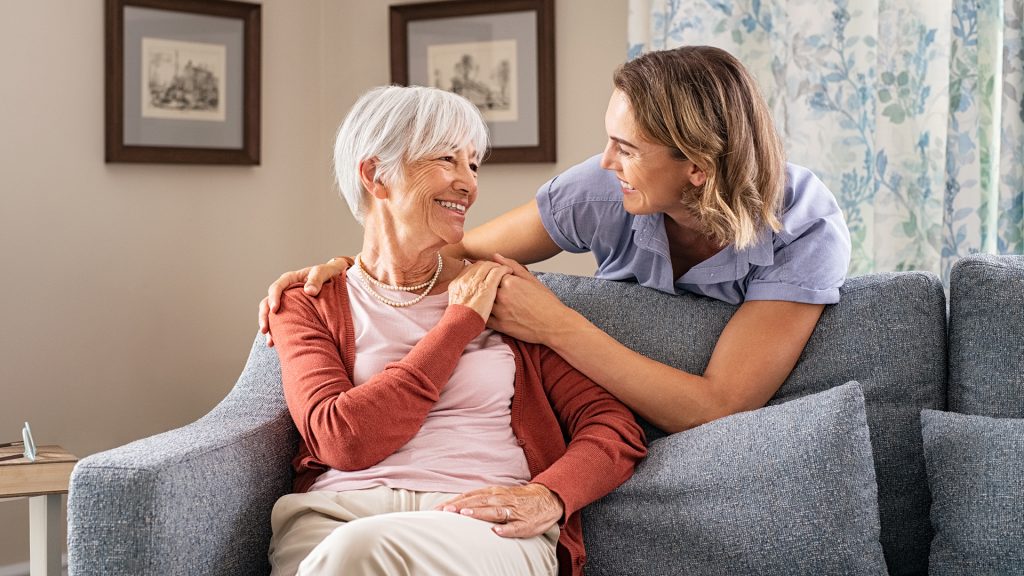
Assisted Living, Sacramento California
If you’re looking for holistic senior living facilities, you may have a loved one experiencing dementia or mental decline. But can someone with dementia understand that they have the disease? Many people have difficulties because their parents or partners refuse to acknowledge they have dementia. The impaired judgment associated with dementia might lead to false assumptions about the world. Denial concerning dementia, on the other hand, is distinct from anosognosia, or the outright lack of awareness that one has the condition. This essay is probably not for you if you are looking for advice on supporting a person in denial about their dementia.
- Does a person with dementia know they have dementia?
- What is the difference between dementia denial and anosognosia dementia?
- How can you help someone with anosognosia dementia?
Those who don’t understand dementia frequently wonder if those who do, do not realize they have it. To put it briefly, the answer is “no” in a few instances. Judgment can be impaired by brain damage or other cognitive issues, and the affected person may be unaware of the problem. It’s also possible for someone with dementia to be aware of their condition yet refuse to accept it, insisting to loved ones that everything is OK.
When it comes to mental illness, anosognosia (which means “not knowing a sickness”) is quite prevalent. The specific signs and symptoms may differ from person to person, but the overall effect is the same: a loss of awareness of one’s illness and its consequences. A diagnosis of dementia does not mean your loved one has anosognosia if they deny or refuse to accept their condition. Simply said, someone who is in denial refuses to acknowledge any truths about the situation. A person with anosognosia has no awareness of their surroundings due to brain injury. Finally, we’ll go over some of the things you may do to aid a loved one who is dealing with anosognosia dementia.
If you’re looking for advice on how to overcome dementia denial, you might want to look elsewhere. Still, we’ll share some advice for supporting someone who suffers from anosognosia. Here are some options to consider. Ignore their objections and go on. You’ll just make your loved ones mad if you insist they have dementia. Rather, you should make efforts to ensure their safety. The kitchen fire risks can be lowered, and appointments can be driven to. You need to pick your battles. Get inside their shoes instead of trying to explain things to them. Avoid rebellion by secretly resolving issues and ignoring minor complaints. Describe some good answers. Avoid saying things like, “You can’t go on a walk by yourself.” You are putting yourself in danger. Instead, ask them if they want to go for a stroll by saying, “You want to go for a walk?” Please take me along. “Let’s go outside; the weather is nice and we could use some fresh air.
.
Holistic Senior Living, Sacramento
Dementia and Alzheimer’s disease are two of the most debilitating and disheartening diseases imaginable, both for the patients and their loved ones who care for them. Because these diseases are so terrible, scientists work tirelessly to develop cures and treatments that would, at the very least, alleviate some of the symptoms. Light therapy is a relatively new treatment for dementia that has shown promising results in research.
In light treatment, the patient sits in front of a light source that is approximately 30 times brighter than a standard office light. The patient would sit in front of the light for a predetermined amount of time multiple times daily as part of the treatment. A person’s circadian rhythms can be helped by bright light therapy, which also has the added benefit of allowing for better sleep. Dementia patients in their golden years often have trouble falling asleep. Bright light therapy is used to trick the brain into staying awake at night and sleeping during the day. More research is needed, but there is encouraging evidence that light treatment can help people with dementia sleep better. This is wonderful news because sleep aids often fail dementia patients or come with too many hazards for them to be worth taking. In addition to reduced wandering, dementia patients who get more sleep at night sleep better overall. Anything that can help keep people from becoming lost, especially in the middle of the night when it’s dark and dangerous, is welcome news. Dementia sufferers whose symptoms peak in the late afternoon or evening, known as “sundowners,” may also benefit from light therapy. At least 40 Hz is ideal for sundowners.
There is much more research into light treatment for dementia to be done. Most human studies have been on a small scale, and measuring success can be difficult. The existence of medicines for dementia and other cognitive impairments, however, provides cause for optimism. Light therapy may be worth a try if you are a caregiver for someone with dementia because there are no known negative side effects (after consulting with a doctor, of course




